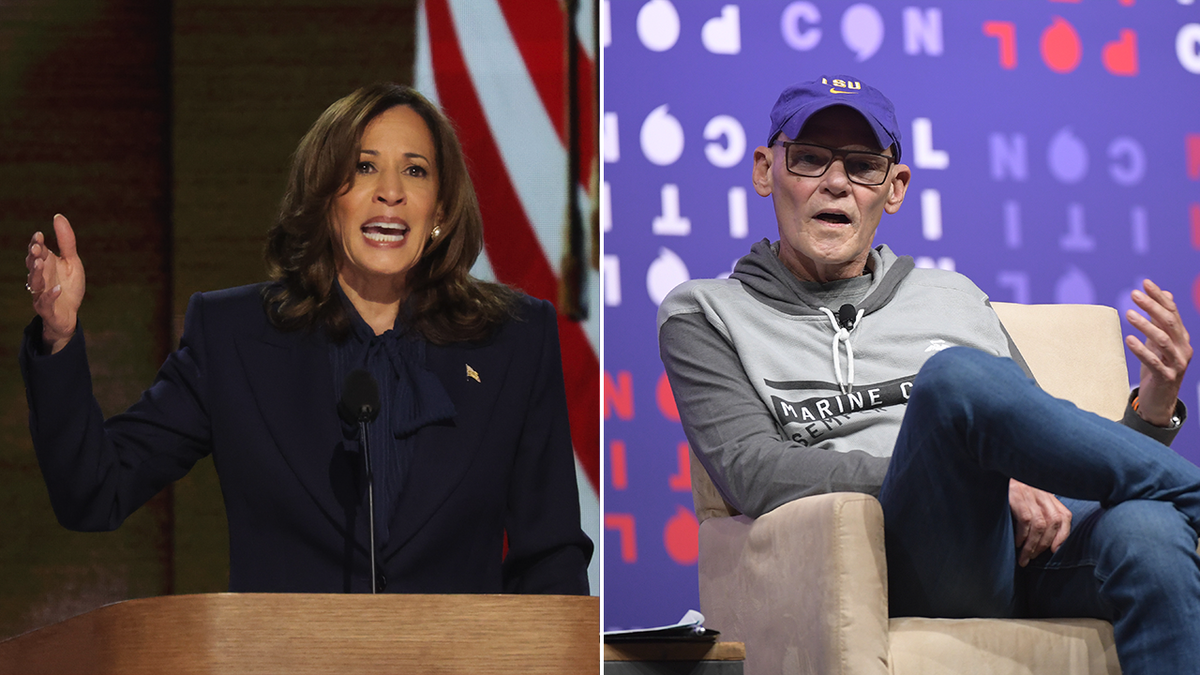Let’s dive right into it, folks. Politics can be messy, and when it comes to the 2024 election, things got even messier than anyone expected. Kamala Harris, the first woman of color to hold the office of Vice President, faced a tough battle in her bid for the presidency. And now, as we reflect on her loss, one name keeps popping up—James Carville. The legendary political strategist has a lot to say about what went wrong, and trust me, it’s not just about the numbers.
James Carville, known for his sharp wit and no-holds-barred approach to politics, has always been a voice worth listening to. From Bill Clinton’s presidency to his insightful commentary on modern politics, Carville’s take on Kamala Harris’s 2024 election loss is nothing short of eye-opening. So, buckle up because we’re about to break it all down.
This isn’t just another political analysis. It’s a deep dive into the strategies, the mistakes, and the lessons learned from one of the most significant election losses in recent history. And Carville? Well, he’s here to tell us exactly where things went sideways.
Read also:Are Gore Websites Illegal
Table of Contents
- Biography of James Carville
- Kamala Harris's 2024 Election Loss
- Strategic Failures That Led to Defeat
- James Carville's Commentary
- Public Opinion and Perception
- The Role of Media in the Election
- Voter Turnout and Demographics
- Lessons Learned for Future Elections
- Conclusion
- Call to Action
Biography of James Carville
Before we get into the nitty-gritty of Kamala Harris’s election loss, let’s take a moment to understand the man behind the analysis—James Carville. Known as one of the most influential political strategists in American history, Carville has been at the forefront of some of the most pivotal moments in politics.
Who is James Carville?
Carville burst onto the scene during Bill Clinton’s 1992 presidential campaign, where he famously coined the phrase, “It’s the economy, stupid.” His knack for simplifying complex issues and turning them into powerful messages has made him a household name in political circles.
Over the years, Carville has worked on numerous campaigns, authored several books, and become a regular commentator on CNN and other major networks. His insights are valued not just for their depth but also for their authenticity.
Key Facts About James Carville
| Full Name | James Carville |
|---|---|
| Birthdate | October 7, 1947 |
| Place of Birth | New Orleans, Louisiana |
| Profession | Political Strategist, Author, Commentator |
| Notable Works | “All’s Fair: Love, War, and Running for President,” “We’re Right, They’re Wrong” |
Kamala Harris's 2024 Election Loss
So, what exactly happened in 2024? Kamala Harris entered the race with high hopes and even higher expectations. As the first woman of color to serve as Vice President, she was seen as a trailblazer who could inspire a new generation of voters. But somewhere along the way, things took a turn for the worse.
Harris faced numerous challenges, from a divided party to a skeptical electorate. Despite her best efforts, she failed to capture the hearts and minds of enough Americans to secure the presidency. And now, as the dust settles, questions abound about what went wrong.
Strategic Failures That Led to Defeat
According to James Carville, one of the biggest issues was the lack of a clear message. “She had so many opportunities to define herself, but instead, she let her opponents define her,” Carville said in a recent interview. Let’s break this down a little further.
Read also:Young Sheldon Cast
Key Strategic Failures
- Inconsistent Messaging: Harris struggled to articulate a clear vision for her presidency. Her policies were often seen as inconsistent, leaving voters unsure of what she truly stood for.
- Weak Ground Game: Despite having a robust online presence, her campaign failed to mobilize voters on the ground. This was particularly evident in key swing states.
- Underestimating the Opposition: Carville argues that Harris underestimated the strength of her opponents, particularly in the Republican Party. This led to a complacent approach that cost her dearly.
James Carville's Commentary
Carville’s analysis of the election is both scathing and insightful. He doesn’t shy away from pointing out the mistakes made by the Harris campaign, but he also offers a glimmer of hope for the future. “Mistakes were made, but that doesn’t mean the fight is over,” he says.
One of the key points Carville emphasizes is the importance of connecting with voters on a personal level. “People don’t vote for policies; they vote for people they trust,” he explains. In Harris’s case, many voters simply didn’t feel that connection.
Public Opinion and Perception
Public perception played a huge role in Harris’s defeat. Many voters felt that she lacked the charisma and leadership qualities needed to lead the country. Social media was ablaze with criticism, and negative narratives about Harris quickly gained traction.
Carville believes that the campaign failed to effectively counter these narratives. “You can’t just let the other side control the conversation,” he warns. Instead, Harris’s team should have been more proactive in shaping public opinion.
The Role of Media in the Election
The media landscape in 2024 was more fragmented than ever, with countless outlets vying for attention. This made it difficult for the Harris campaign to get its message across consistently. Carville argues that the campaign should have focused more on building relationships with key media players.
“You can’t ignore the media, but you also can’t let them dictate the narrative,” he says. The campaign’s failure to navigate this complex media environment was a significant factor in its downfall.
Voter Turnout and Demographics
Voter turnout was another critical issue in the 2024 election. Despite Harris’s efforts to engage young and minority voters, turnout in these key demographics was lower than expected. Carville attributes this to a lack of enthusiasm among these groups.
“When people don’t see themselves in the candidate, they’re less likely to show up on election day,” he explains. This was particularly evident in urban areas, where turnout was significantly lower than in previous elections.
Lessons Learned for Future Elections
So, what can we learn from Kamala Harris’s 2024 election loss? According to James Carville, the lessons are clear:
- Consistent Messaging: Candidates must have a clear and consistent message that resonates with voters.
- Strong Ground Game: Mobilizing voters on the ground is just as important as having a strong online presence.
- Proactive Media Strategy: Campaigns must be proactive in shaping public opinion and countering negative narratives.
- Engaging Key Demographics: Building enthusiasm among key voter groups is crucial for success.
Conclusion
In conclusion, Kamala Harris’s 2024 election loss was a wake-up call for the Democratic Party. It highlighted the importance of clear messaging, strong ground games, and proactive media strategies. James Carville’s insights offer a roadmap for future candidates who hope to avoid the same pitfalls.
As Carville puts it, “Politics is a contact sport, and you’ve got to be ready to play hard.” For those looking to make a difference in the political arena, the lessons from Harris’s campaign are invaluable.
Call to Action
So, what’s next? If you found this analysis insightful, we’d love to hear your thoughts. Leave a comment below and let us know what you think. And don’t forget to share this article with your friends and family. Together, we can keep the conversation going and ensure that future elections are more informed and inclusive.


